Official Certifications
The voluntary product certification is a formal act with which a accredited third party body he says, with reasonable confidence, that the product complies with what is declared in a reference technical document.
The company's choice of certifiable product requirements is based on the desire to inform the consumer of some particular and significant characteristics that differentiate the product from others in the same category.
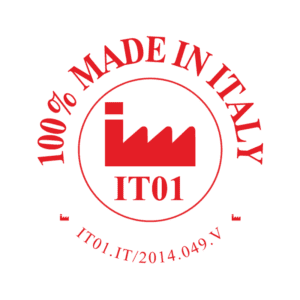
100% Made in Italy IT01
There 100% Made in Italy certification that the Institute for the Protection of Italian Producers issues is carried out in line with the parameters established by current Italian legislation:
law n. 166 article 16 of 20 November 2009.
The company requests certification by declaring that it possesses the requirements: entirely Italian production, Italian semi-finished products, first choice materials, own style, typical traditional workmanship.
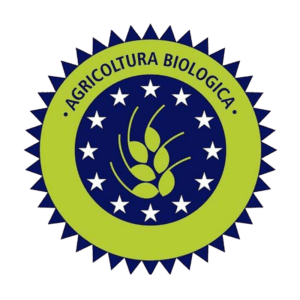
Bio
Organic production, governed by EC regulation no. 834/2007 and subsequent amendments, is a global sustainable management system for agriculture based on the interaction between the adoption of the best cultivation practices in terms of environmental impact; the responsible use of energy and natural resources such as water, soil, organic matter and air; maintaining a high level of biodiversity; the application of strict animal welfare criteria.
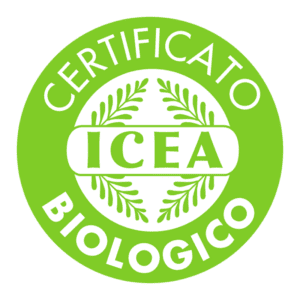
ICEA Organic Certificate
ICEA was born from the experience of AIAB (Italian Association for Organic Agriculture): ICEA's commitment, therefore, starts from organic farming and from the idea of a sustainable and supportive economy model, and goes beyond organic farming, heading towards a 'economy and lifestyles that require a responsible conversion of methods, systems and practices the acronym used to indicate theInstitute of Ethical and Environmental Certification. The ICEA certification is the most used in Italian bio-cosmetics, it offers the consumer considerable guarantees in terms of reliability and naturalness.
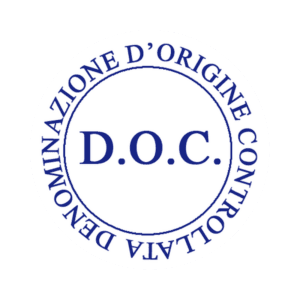
DOC (Denomination of Controlled Origin)
It is used to designate a quality and renowned product, whose characteristics are connected to the natural environment and human factors and comply with specific production regulations approved by ministerial decree. These wines, before being put on the market, must be subjected during the production phase to a preliminary chemical-physical analysis and an organoleptic examination which certifies compliance with the requirements set out in the specifications; failure to comply with the requirements prevents it from being marketed with the DOC label.
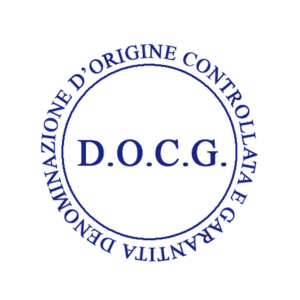
DOCG (Denomination of Controlled and Guaranteed Origin)
The controlled and guaranteed designation of origin, known by the acronym DOCG, is an Italian brand that indicates to the consumer the geographical origin of a wine. The DOCG are reserved for wines already recognized as a controlled designation of origin (DOC) for at least ten years which are considered of particular value, in relation to the intrinsic qualitative characteristics, compared to the average of those of similar wines thus classified, due to the incidence of traditional natural, human and historical factors and which have acquired renown and commercial valorisation at a national and international level. These wines, before being put on the market, must be subjected during the production phase to a preliminary chemical-physical analysis and an organoleptic examination which certifies compliance with the requirements set out in the specifications; Furthermore, the organoleptic test must be repeated, batch by batch, even during the bottling phase. Finally, for DOCG wines, a sensorial analysis (tasting) carried out by a special commission is also envisaged; failure to comply with the requirements prevents it from being marketed under the DOCG brand.
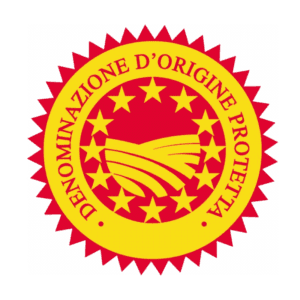
PDO (Protected Designation of Origin)
The Protected Designation of Origin is a name that identifies a product originating in a place, region or, in exceptional cases, in a particular country, whose quality or characteristics are essentially or exclusively due to a particular geographical environment and its intrinsic natural and human factors and whose production stages take place in the defined geographical area. Currently, 578 products have been recognized with the PDO denomination, of which 170 agri-food products and 408 wines. The Denominations system helps to support production in the territories of our country, with the main purpose of rewarding the efforts made by producers to obtain a diversified range of quality products and have positive effects on the rural economy.
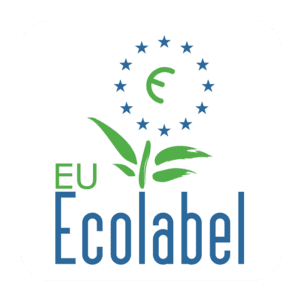
Ecolabel
EU Ecolabel is the ecological quality mark of the European Union (EU Ecolabel) which distinguishes products and services which, while guaranteeing high performance standards, are characterized by a reduced environmental impact during the entire life cycle. EU Ecolabel was established in 1992 by Regulation no. 880/92 and is today governed by Regulation (EC) no. 66/2010 in force in the 28 countries of the European Union and in the countries belonging to the European Economic Area - EEA (Norway, Iceland, Liechtenstein). EU Ecolabel is a voluntary eco-label based on a system of selective criteria, defined on a scientific basis, which takes into account the environmental impacts of products or services throughout their entire life cycle and is subject to certification by an independent body ( competent body).
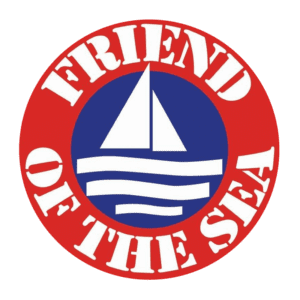
Friend of the Sea
Friend of the Sea was. founded by Paolo Bray, director of the international Dolphin-Safe project of the Earth Island Institute. The Dolphin-Safe project has saved millions of dolphins from dying in tuna fishing nets and started the sustainable seafood movement. Friend of the Sea is a project of World Sustainability
Organization, an international NGO carrying out a humanitarian mission of environmental protection. Friend of the Sea has become the leading certification standard for products and services that respect and protect the marine environment. The certification rewards sustainable practices in the fisheries, aquaculture, fish oil and omega 3 production sectors. Friend of the Sea also promotes pilot projects related to restaurants, sustainable shipping, whale and dolphin watching, aquariums, ornamental fish and UV creams. Friend of the Sea is the only sustainable fisheries certification program internationally recognized and overseen by a national accreditation body. Several benchmarks confirmed the strength and reliability of the Friend of the Sea certification and traceability (chain of custody) criteria.
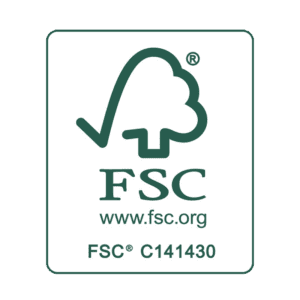
FSC extension
The FSC certification mark guarantees that the entire wood-paper chain certified to its standards derives from environmentally friendly, socially useful and economically sustainable forest management.
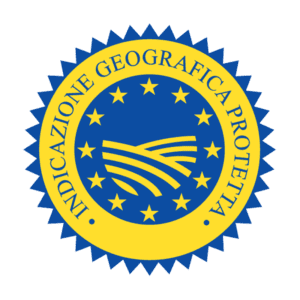
PGI (Protected Geographical Indication)
The Protected Geographical Indication is a name that identifies a product which also originates from a specific place, region or country, to whose geographical origin a given quality is essentially attributable; reputation or other characteristics and whose production takes place for at least one of its phases in the defined geographical area. Currently, 257 products have been recognized as Geographical Indications, of which 139 agri-food products and 118 wines. The Designation system helps to support production in the territories of our country, with the main aim of rewarding the efforts made by producers to obtain a diversified range of quality products and have positive effects on the rural economy.
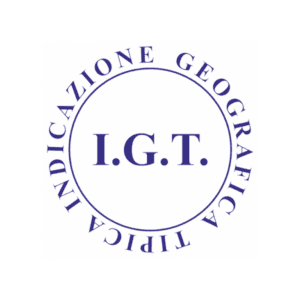
IGT (Typical Geographical Indication)
The typical geographical indication, better known by the acronym IGT, is the third of the five wine classifications implemented in Italy; indicates wines produced in generally large areas but according to specified requirements. The basic requirements for the recognition of an IGT wine are reserved for wines whose production takes place in the respective geographical indication, the grapes from which it is obtained come for at least 85% exclusively from that geographical area, with the organoleptic characteristics indicated. The requirements are less restrictive than those required for wines with a controlled designation of origin (DOC). The IGT is important as it is the first step (of the pyramid) that separates the wine without indication (generic) from the wine with indication. Since 2010 the IGT classification has been included in the PGI community category.
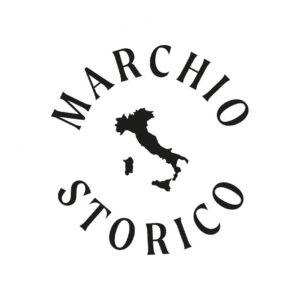
Historical brand
Trademarks that have been registered for at least fifty years or for which it is possible to demonstrate continuous use for at least fifty years, used for the marketing of products or services made in a national manufacturing company of excellence historically connected to the national territory, can obtain the registration of the trademark in the register of historical trademarks of national interest, set up at the Italian Patent and Trademark Office.
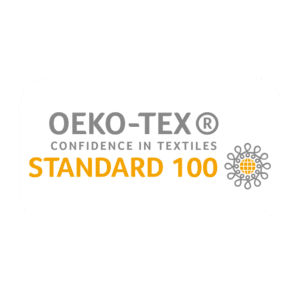
Oeko-Tex Standard 100
STANDARD 100 of OEKO-TEX® is a textile certification created as a guarantee label for consumer health and in particular, the objective is to prevent adverse reactions induced by clothing potentially contaminated by toxic substances. It is one of the best known labels in the world for fabrics tested for harmful substances. It stands for customer trust and high product safety.
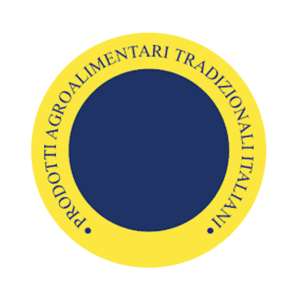
PAT (Traditional Agri-Food Product)
Traditional Italian agri-food products (PAT) are products included in a specific list, established by the Ministry of Agricultural, Food and Forestry Policies (MIPAAF) with the collaboration of the Regions. MiPAAF has decided to focus clearly on niche sectors, valorising traditional products in which agricultural or livestock products were processed according to ancient recipes. The requirement to be recognized as Traditional Agri-Food Products (PAT) is to be «obtained with processing, conservation and seasoning methods consolidated over time, homogeneous for the entire territory concerned, according to traditional rules, for a period of no less than twenty-five years» . But it is the ministry itself that recognizes that these "niche products", of limited production in quantitative terms and relating to very limited territorial areas, do not justify a PDO or PGI.
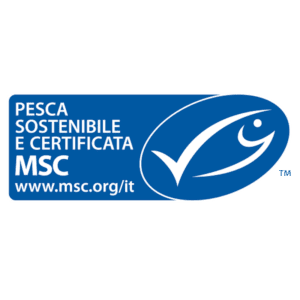
Sustainable and certified fishing
Lorem ipsum dolor sit amet, consectetur adipiscing elit, sed do eiusmod tempor incididunt ut labore et dolore magna aliqua.
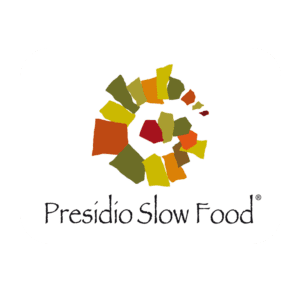
Slow Food Presidium
The projects of the Slow Food Foundation are tools for promoting a model of agriculture, based on local biodiversity, respect for the territory and local culture. Agriculture in balance with the environment whose main objectives are food sovereignty and access for all communities to good, clean and fair food.
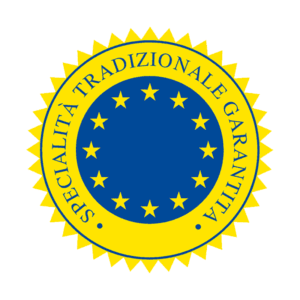
STG (Traditional Specialty Guaranteed)
STG recognized products follow specific production methods and traditional recipes. Raw materials and ingredients used traditionally make these products specialities, regardless of the geographical area of production. Currently, 3 Guaranteed Traditional Specialties have been recognized: Mozzarella, Neapolitan Pizza and Traditional Amatriciana. The Denominations system helps to support production in the territories of our country, with the main purpose of rewarding the efforts made by producers to obtain a diversified range of quality products and have positive effects on the rural economy.

